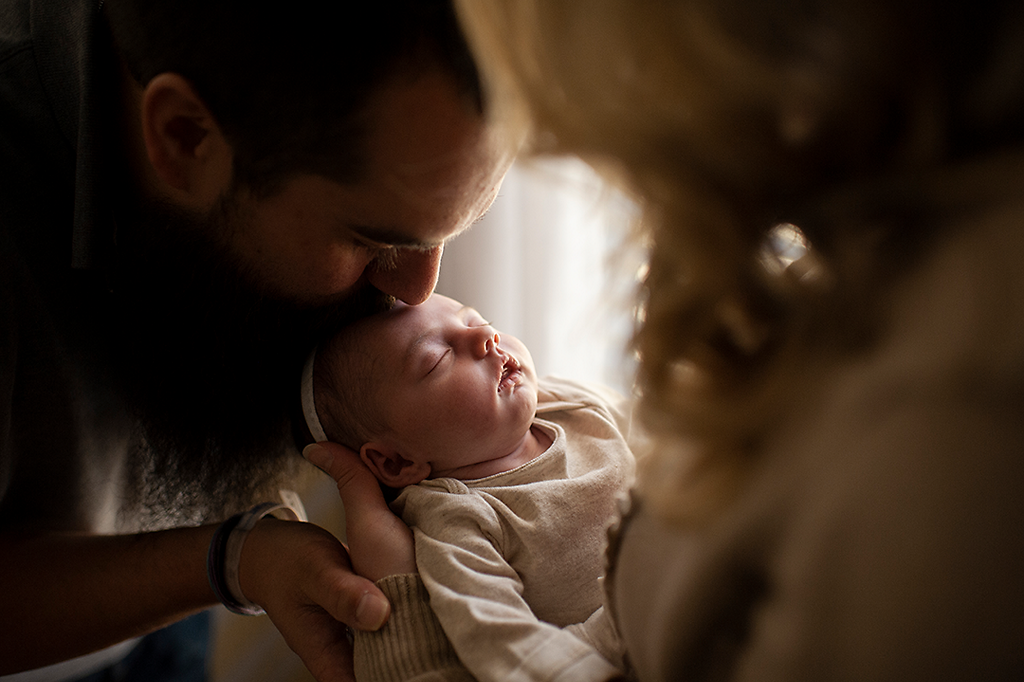What to expect when expecting: How to financially prepare for a baby
Becoming a parent is one of the most exciting and rewarding experiences one can have, but planning for a baby financially is sobering. Babies are expensive. In fact, according to research from the Paterson Center on Healthcare and the Kaiser Family Foundation, the total cost of pregnancy, delivery, and postpartum care ranges from $14,768 to $26,280.1 While some of these expenses will probably be covered by insurance, the cost of raising a child can be substantial, and it is essential to start financially preparing for your baby well in advance.
So, what financial things can you do before having a baby? These money-saving tips can show you how to avoid unnecessary spending, while helping you financially plan for your baby’s future.

Have the money talk.
If you haven’t done so yet, sit down with your partner and discuss your finances and your plans for after the baby arrives. If one of you plans to stop working to care for the baby, will it be a permanent change or a temporary one? Do you plan to start a college savings plan now or wait a few years? Are there any special things you want to do while your child is young?
The most important thing is to both be on the same page and working as a team, so have open and regular discussions with your partner about your finances.
Estimate your baby expenses.
Once the baby arrives, you probably won’t feel as if you have time for anything else, so make sure you estimate your baby expenses before the baby arrives. Create a list of all the necessary items you think you will need, like diapers, formula, clothing, and furniture, and research the prices. Today’s Parent offers this detailed newborn checklist that can help you prepare. You can also ask other parents what items they consider essential and what items they have found to be a waste of money.
In addition, expect to have some immediate medical expenses. Depending on your insurance, you’ll likely incur some significant medical bills relating to your delivery. Likewise, your job may or may not offer paid maternity or paternity leave, so you may be missing out on income. If you’re returning to work, childcare costs must also be added to the equation.
It’s important to take every expense you can think of into consideration so you can create an accurate budget. Overestimating your expenses is a good problem to have. Underestimating them, not so much.
Create a budget.
Your baby will not only upend your life, but your finances as well. From diapers to strollers and everything in between, there’s a lot of stuff to buy to prepare for your new arrival. So how much should you save per month for your child? If your income isn’t getting any bigger, it all depends on your budget.
Identify your monthly income and expenses, and see where you can cut back to make room for baby expenses. Consider reducing your entertainment budget, your dining-out budget, and any unnecessary subscriptions. Start allocating that money into a savings fund for your baby's needs.
Reassess your insurance coverage.
Review your health insurance policy to ensure that it covers prenatal and childbirth expenses. If it doesn't, consider purchasing additional coverage or switching to a plan that provides better coverage. You may also want to consider life insurance and disability insurance to protect your family financially in the event of an unexpected and devastating loss. Speak with a financial professional to discuss your options, so you can choose the right policy or policies for your needs.
Additionally, choosing a good pediatrician who’s in your health insurance network can go a long way toward helping you avoid unnecessary expenses from doctors outside your network. Your baby will be visiting the pediatrician shortly after arrival, so you want to make sure you have one picked out. Talk to friends and family members to get their recommendations, but it’s important to interview the pediatricians yourself before you make your choice. Choosing the right doctor can make a world of difference during this exciting yet stressful time.
Plan for the future.
Childcare costs can be significant, so it's important to plan for them early. Research local childcare options and their associated costs. Consider whether you want to use a daycare center or hire a nanny. If you need to adjust your work schedule or if one parent can stay home to reduce childcare costs, then make sure all the necessary steps have been taken with your employers well in advance.
You should also start saving money for kids as early as possible. Start a college savings plan and begin contributing a small portion of your income every month. If you can’t afford a lot at the beginning, that’s OK. If you’re contributing regularly throughout their childhood, you can build up a significant nest egg by the time they graduate from high school. You can also look into 529 college savings plans (which grandparents can contribute to as well); they will help bolster your savings by growing tax-deferred.
Finally, it may seem counterintuitive, but saving for your own retirement is crucial to preparing for your baby. By prioritizing your retirement savings, you can ensure that you don't become a financial burden on your children in the future. Consider increasing your contributions to your 401(k) or IRA, and make sure you're taking advantage of any employer matching contributions.
While planning for a baby financially may seem overwhelming at first, with some preparation and a little bit of strategy, you will be ready to meet your little bundle of joy, knowing you are doing your best to give your child the future he or she deserves.
RELATED CONTENT
Want to learn more about how to financially prepare for a baby?
A New York Life financial professional can help determine what’s right for you.
Learn how we can help you meet your retirement goals and prepare for your family's future.
Thank you for subscribing!
1Matthew Rae, Cynthia Cox, and Hanna Dingel, “Health Costs Associated with Pregnancy, Childbirth, and Postpartum Care,” HealthSystemTracker.org, July 13, 2022. https://www.healthsystemtracker.org/brief/health-costs-associated-with-pregnancy-childbirth-and-postpartum-care/






